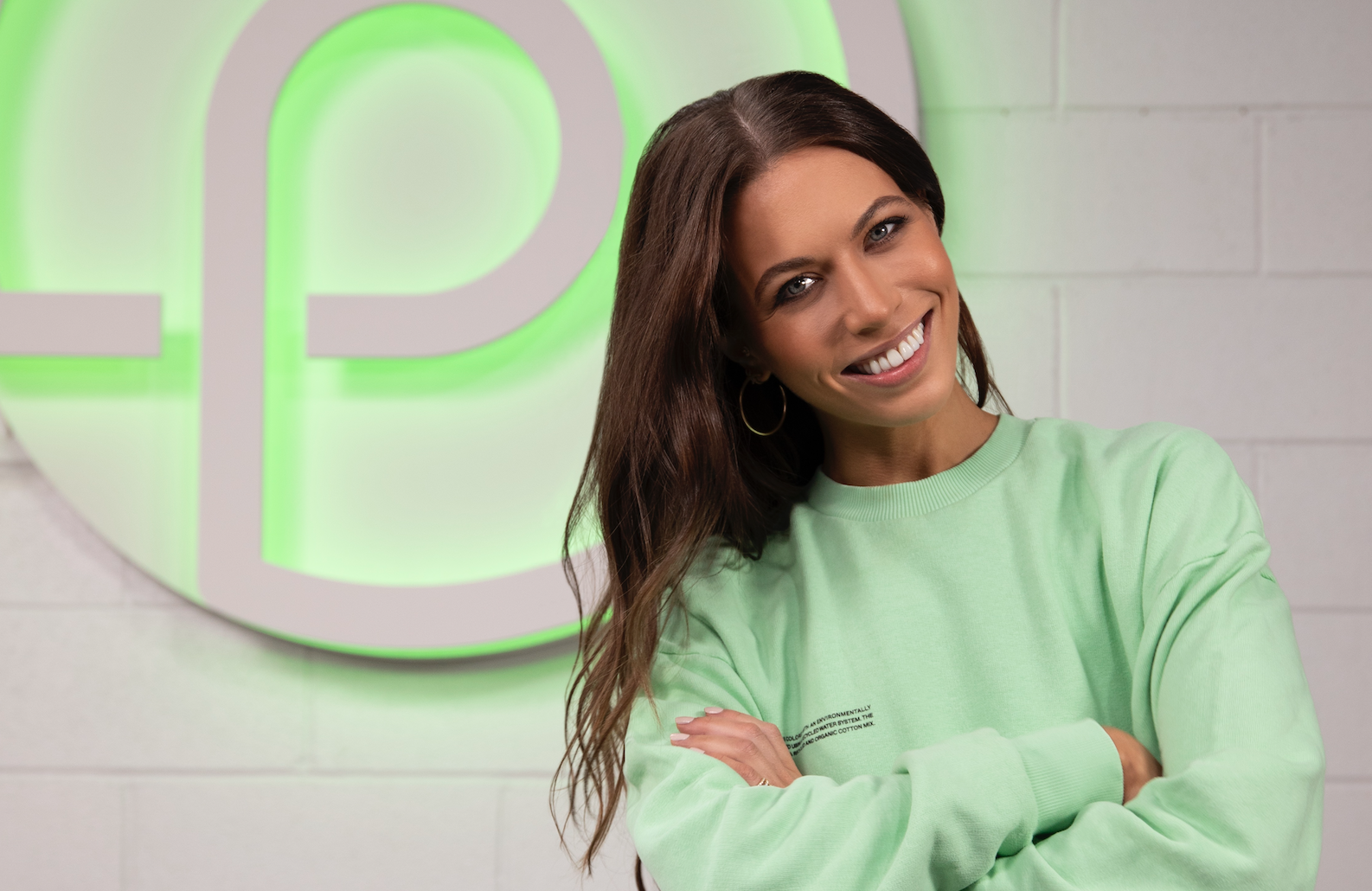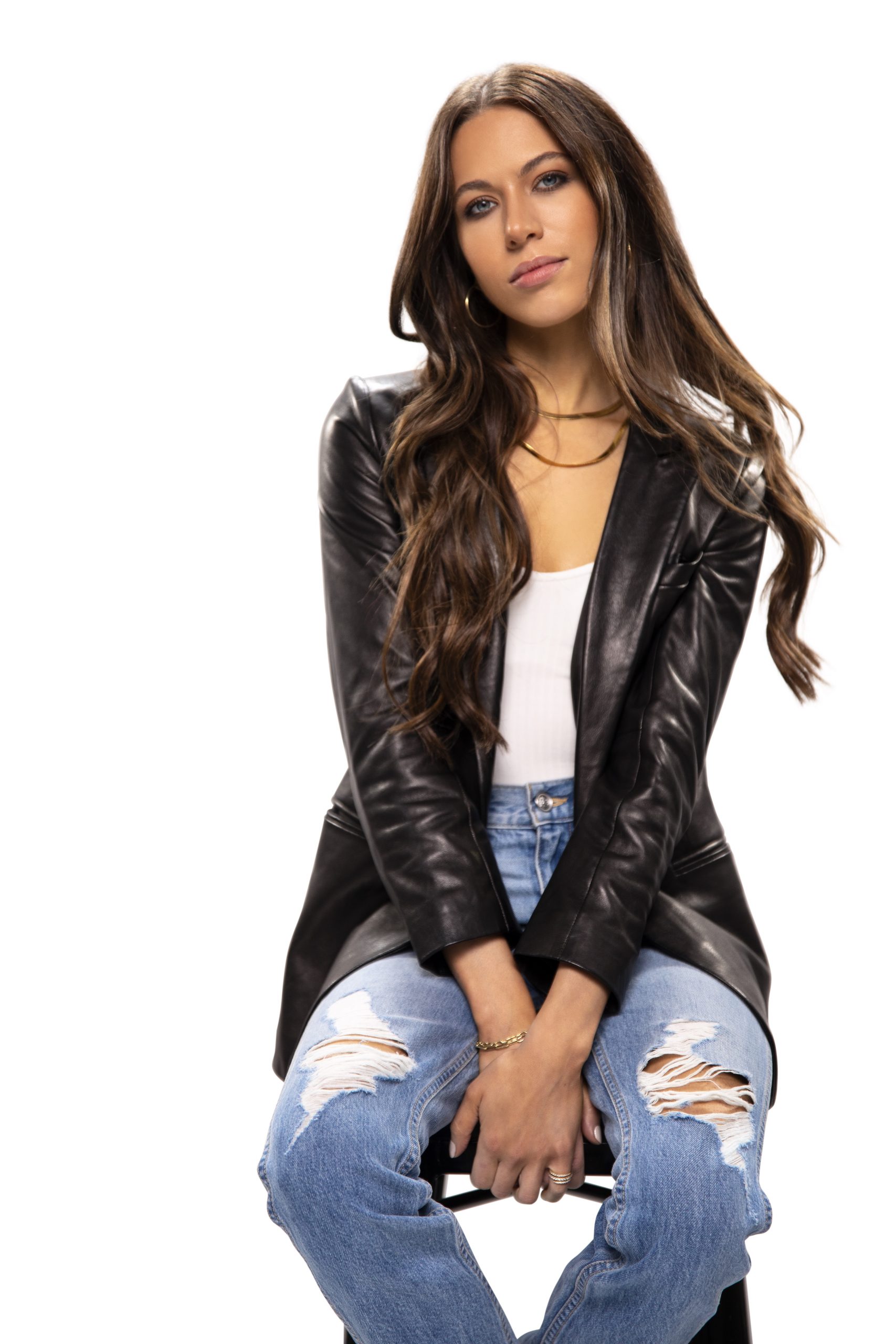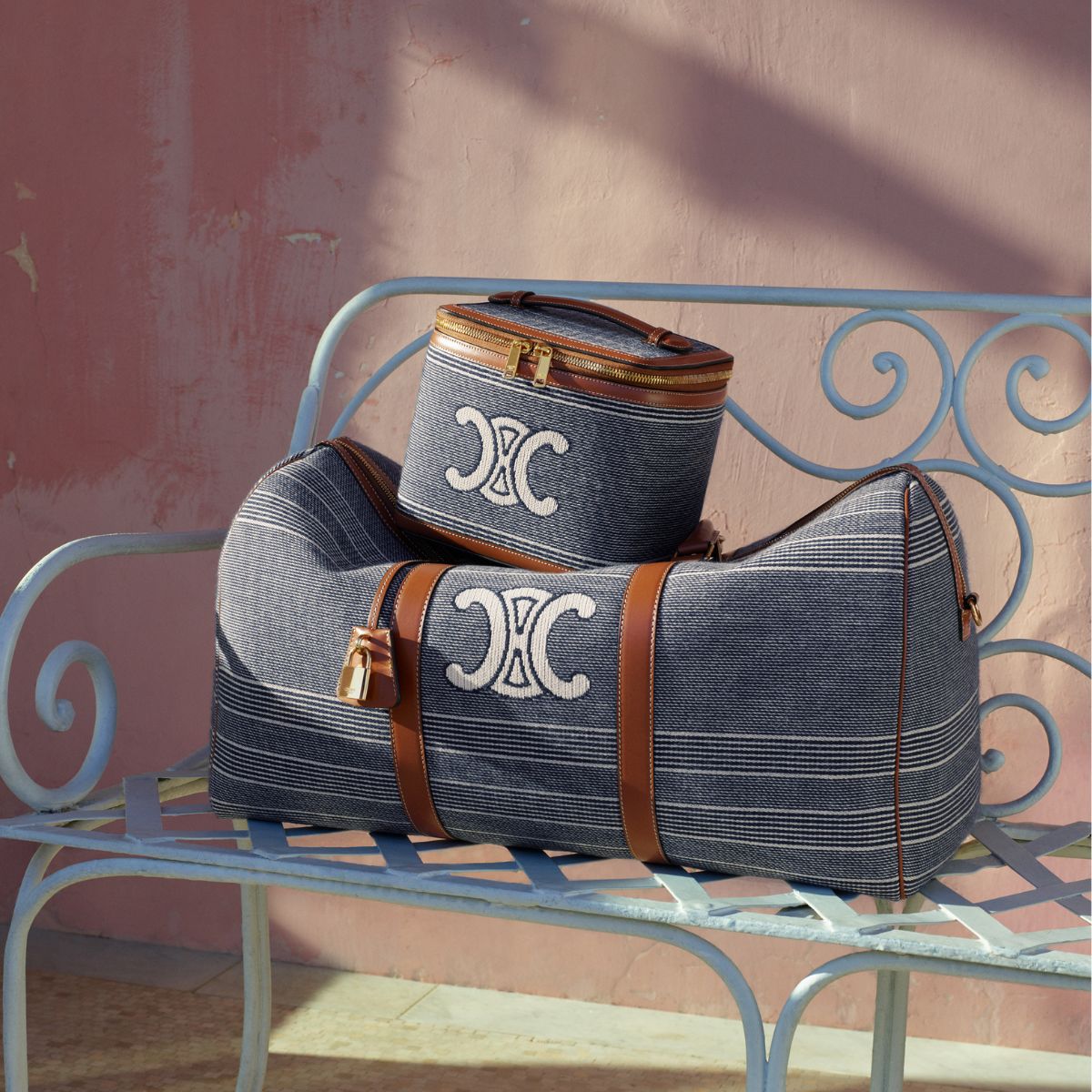P.volve CEO Rachel Katzman talks pivoting, trusting your gut and destroying the taboos around women's health


You would have to be living under a rock not to have heard of P.volve, with its trusted fitness method known across the world.
Promising to transform you from the inside out, P.volve is 'an accessible fitness method that connects mind to muscle to help everyone look and feel their best', with their resistance-based, high-intensity, low-impact movements proven to strengthen, sculpt and energise the entire body.
With hundreds of workouts on the P.volve app, Instagrammable apparel and patented specialised equipment that works magic (hello P.ball), it's hardly surprising that P.volve has been having a real moment.
But what about the woman behind the female-led brand? Features Editor Jenny Proudfoot caught up with Rachel Katzman, P.volve's CEO and co-founder, for a dose of inspiration - and she did not disappoint.
Here's what Rachel had to say about pivoting over COVID-19, ensuring that everyone has a voice at the table and ending the taboos around women's health issues...

Take me back to the start of P.volve...
I started focusing on my fitness after I moved away from home for college and experienced weight gain that caused my body to change in ways I wasn’t expecting. Soon after that, I was jumping in and out of every trendy class in New York City to gain my confidence back. I was running myself down, not seeing any physical transformation, was in terrible pain, and eventually learned I had scoliosis. When I met my now co-founder, Stephen Pasterino, and started studying functional fitness, my whole mindset and the way I looked at fitness shifted. Now I understand that breaking my body down through high-impact workouts will not give me the results I am looking for, and that low impact and high intensity don’t have to be mutually exclusive. Functional fitness taught me that you need to work with your body, not against it, and that personal and physical gain shouldn’t be associated with pain.
That’s when I knew that I had to bring this method and mindset to the world. I saw so many women like me injuring themselves, working until exhaustion and breaking their body down – so we opened a small studio in Chinatown in 2016. Within weeks, our classes were garnering waitlists; we knew we had something special and began discussions of taking it online. I started filming workouts on my iPhone, editing them on my Mac at night and uploading them to our platform. We officially launched P.volve in November of 2017 with a handful of workouts. The name comes from evolving mindsets on fitness – hence the “volve” – while the P represents some of the core philosophies that are grounded in functional fitness: precision, purposeful movement, proper alignment and injury prevention.
Marie Claire Newsletter
Celebrity news, beauty, fashion advice, and fascinating features, delivered straight to your inbox!
Those early, gritty days were absolutely exhausting but still some of the most rewarding times. I wouldn’t change any of it – it’s what got us to the global On-Demand company we are today!
What is the bravest thing you’ve ever done?
By far, it’s been launching my two businesses. I launched Cuvee Beauty (my hair care line that I sold in 2019) and P.volve within a year of each other. It was terrifying but something deeply rewarding that I knew I wanted to do. I was young and green, but my passion drove me to get out of my comfort zone and take that next step. I am open about the fact that I tried the college route, and it wasn’t for me. I knew from an early age that I was going to run a company; I had to look in the mirror one day and talk myself into taking that first step. Even now, I remember exactly where I was when we set both websites live and received our first orders. The adrenaline plus the lack of sleep made it all the more stressful, but I am so proud of my 25-year-old self!
What has been your biggest challenge?
As a CEO of a startup, I can be incredibly picky about with whom I choose to surround myself. I started this company with three amazing and inspiring fellow businesswomen. We have supported each other every step of the way and hired a team that is focused on collaboration and teamwork; collectively, we have been on a rocket ship ever since.
When COVID hit, like everyone else, we all retreated to our homes and stayed there. That loss of in-person interaction and being in the same room brainstorming, problem solving and driving the business forward was devastating to me, at first. I knew that collaboration and teamwork were why we were so successful, and I was afraid we would lose that grit. I think we all felt very alone for the first time since we started this business.
But we did what we had to do and shut down our NYC offices, our new studio in SoHo and our production facility where we produce all our OnDemand content. As a wellness and lifestyle brand, I knew we couldn’t simply stop creating content. If anything, we knew our community, now stuck at home, needed us more than ever. We immediately pivoted, sending all of our trainers recording equipment to their homes, and focused on bringing real, authentic workouts to our members – from our homes to theirs. Not only did we produce content for our On-Demand platform, but we also released free content on our Instagram channel daily, so that anyone could access a workout from home, regardless of their membership status. We also launched our Live Virtual Classes, online health coaching and virtual Private Trainings. It was a huge challenge to operationalize all of this within weeks, but we did it. We knew it was the right thing to do for the millions of people who were struggling to prioritize their heath amidst a global pandemic.
Have you ever felt discriminated against as a female founder?
I have been exceptionally lucky because I have grown this business alongside a team of women who I respect, trust and with whom I collaborate exceptionally well. We have been through thick and thin together, so I feel I have been guarded a bit from some of the horror stories I hear happen in the startup space. We are still a relatively young company and have been extremely cautious when it comes to partnerships and the types of meetings we take. That is by design. We know we are on a rocket ship and that we have created a global brand that will undeniably reshape how fitness and wellness services are offered in the coming years. So, with that knowledge, we are careful, and we vet our opportunities thoroughly. I have grown up in a family of entrepreneurs, and I understand the biases out there. Because of that, it has been my mission to create a company that is women-led and where everyone has a voice at the table.
What is your typical working day?
I’m sure most entrepreneurs won’t be surprised, but I start my day exceptionally early. I am usually up and online by 5:30am, checking in and getting back to people. Six days a week, I work out either with our on-demand platform or through our virtual studio; you can typically find me in a class around the 7am hour. Now more than ever, it’s important that I am able to find that physical and mental release. After that, I am cooking and meal prepping; I made a vow to put as much time and thinking into what I put into my body this year as I do into my workouts. Then, I usually jump into my calls starting around 9am. It’s very important for me to be in the right meetings but also spend lots of time thinking about and watching our customers. We are a data-driven company, so I spend most of my day diving into that data – what workouts are getting the most views, what blogs are hitting home, and what equipment kits are rating the highest for the day. Understanding the data and actively taking our classes (I make sure I take classes with different trainers each day) is what keeps me grounded as a CEO. I close out the day a bit early because of my start time but always find time to play with my two cats – Nobu and Matsu – who have been known to make appearances on my Zoom calls. Lastly, I never go to bed without a relaxing face mask and some “me” time.
How can you achieve the right work/ personal life balance?
This can be an unpopular answer, but I don’t have that balance because I absolutely love what I do. My personal and professional lives intersect by design. I work with people who I consider family, and I talk to my friends about my work constantly. I think when you try to dissect is when it can get complicated. I try to start my day understanding what my priorities should be; some days there are personal issues that absolutely need more of my attention, and other days it’s all business. But I don’t feel guilty about either because I know I can be successful in life if I continue to be obsessed with what I do and prioritize what matters day by day.
What is the best advice you’ve received?
I was told once that if you love what you do, you never really work a day in your life. And it’s true. I wake up every day energized to be the best I can be and thankful to stand beside my amazing team. Also, I had a mentor who told me that data is everything but don’t forget about your gut. That was one of the most powerful pieces of advice I’ve ever received – because there are moments in business when you must trust your gut and lead with instinct. It’s never done me wrong, and I don’t ever plan on losing that. And lastly, I know I can’t be afraid to fail – the key is to fail fast and get back up.
What has been your proudest moment?
I have had so many amazing moments with my team at P.volve – from the launch of our first studio in NYC to perfecting the first prototype of the p.ball. Having an idea and watching it develop, and ultimately seeing our members enjoy it and get results, makes me so proud. But I will say one of the most fulfilling moments I ever experienced was shortly after we launched; I had a customer DM me on Instagram and tell me that she wasn’t able to work out for years because of injuries she had sustained earlier in life, and that P.volve changed that. She sent me pictures doing the workout and thanked me for changing her life. That was an emotional moment for me. We hear that now constantly through our community and honestly, I still get goosebumps each time. That’s why I started this company; to see it changing people’s lives is what gets me up every day.
How can we all ask for more?
At the end of the day, it’s all about communication. I think discussions around pay and promotions should not be a sacred conversation that only happens once a year in a formal review. You have to foster strong two-way communication between your manager and have ongoing discussions about what you want and where you see yourself going within the company. If you wait for those milestone or annual moments, you won’t get to where you want to go. Your manager should be someone who is walking alongside you as you grow; being honest and transparent is key to that relationship making both of you more successful.
What is your superpower?
This is a difficult question! But I would like to see myself as somewhat of a visionary and someone who can see a large picture unfolding before many others can. During my first workouts with my co-founder, Stephen, I saw this company launching with an On-Demand platform and proprietary equipment. I grew up in a household where we didn’t talk about what we wanted to do – we talked about the types of companies we wanted to start. So, I think early on, I was able to see trends and market gaps that have led me down a successful road as an entrepreneur.
How do you celebrate success?
Personally, it’s hard to truly celebrate a successful moment for long because I am an entrepreneur, and you have to live in the moment and know that if you don’t give everything you have that day, it could be your last. But I do consciously try to celebrate my teams’ wins daily. Whether that is through emails, calls or messages thanking them for putting all they have into our company. I do my best to let them know that I see what they do, and I appreciate it.
What will you never compromise on in business?
I will never compromise on our speed. What we have accomplished in just three years is something most companies would do in six. We pivot, we move quickly, we work very hard and that mentality has allowed us to be where we are and will allow us to get to where we want to be. That type of speed and intensity isn’t for everyone – but it’s the only way I know how to work, and I don’t see that ever changing.
What is the biggest mistake you’ve made?
When we launched our company in 2017, we jumped in with force from a marketing perspective. We knew we had a philosophy and a method that could turn the fitness industry on its head, and we wanted to scream it from the rooftops. We invested early in marketing and did that steadily for our first two years. Looking back, we should have been just as bullish in developing our technology. So that was a huge focus for us in 2020 and continues to be this year – bringing in the right engineering and technical support to ensure that anyone in the world has access to our method.
What is your mantra?
From day one, my go-to phrase has always been “Better is Better.” In the startup world, so much is about speed-to-market, testing and iterating. And if you spend most of your time trying to perfect a concept, your business will die a slow death. So, you will hear me in meetings when there is concern about moving on an idea or trying something for the first time yell out, “Better is better. Let’s move!” I hope that gives my team the sense that they can fail and try things that don’t work. That’s what innovation is all about. Focus on the small and quick wins, and you will get to that finish line so much faster.
What would you want to change for women?
I want all the “back room” conversations to vanish. It’s incredibly frustrating that topics about our bodies like our menstrual cycle, hormones, post-pregnancy issues, etc. are still taboo. And as a CEO of a women-led company focused primarily on women’s health, I know I have an opportunity to change that. We launched a campaign last October encouraging women to talk about the issues they are having post-pregnancy, in the bedroom and with their bodies and to be empowered to find the answers, programs and medical advice they need to live their best lives. We are constantly partnering with the medical community as we expand our offerings to go deeper on physical and mental issues that plague women. It’s important that every woman knows her health must be paramount, and conversations about her own body are nothing to be ashamed of.
What could we all achieve if we supported each other?
More innovation around women’s health issues. Women’s health should not be an issue that only women are working on or speaking about. If we can come together and create programs and support initiatives that foster transparent conversations around healthcare, benefits and support for women, our society will be better for it. The statistics coming out about the toll this last year took on women – such as struggles returning to the workforce, trying to homeschool children while holding down full-time jobs, and the inability to focus on their own mental and physical health – are serious issues that will cause a ripple effect for years to come. Many more CEOs and leaders need to not only be a part of these discussions but also part of the solutions.
Check out the P.volve website for more information.

Jenny Proudfoot is an award-winning journalist, specialising in lifestyle, culture, entertainment, international development and politics. She has worked at Marie Claire UK for seven years, rising from intern to Features Editor and is now the most published Marie Claire writer of all time. She was made a 30 under 30 award-winner last year and named a rising star in journalism by the Professional Publishers Association.
-
 Here's every character returning for You season 5 - and what it might mean for Joe Goldberg's ending
Here's every character returning for You season 5 - and what it might mean for Joe Goldberg's endingBy Iris Goldsztajn
-
 Céline's new Selfridges pop-up is an ode to summers on the French Riviera
Céline's new Selfridges pop-up is an ode to summers on the French RivieraA one-stop-shop for the ultimate holiday wardrobe
By Clementina Jackson
-
 Why Prince William will attend the pope's funeral instead of King Charles
Why Prince William will attend the pope's funeral instead of King CharlesHe's representing his dad
By Iris Goldsztajn